

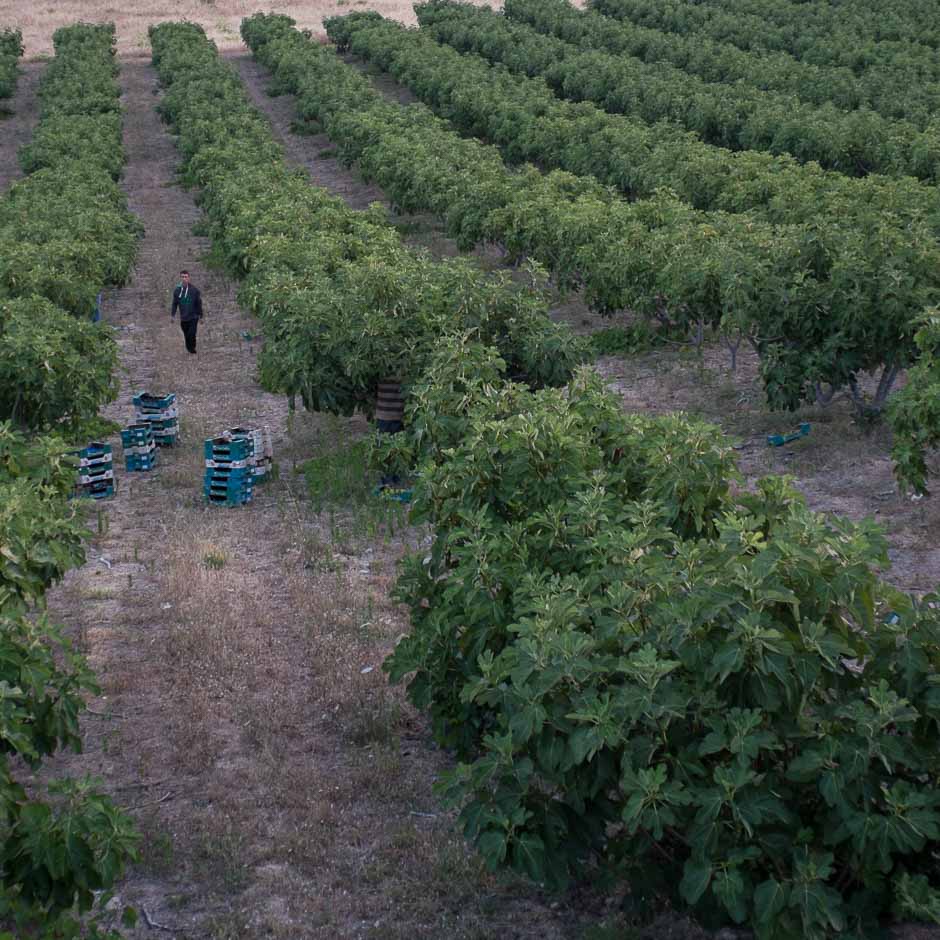

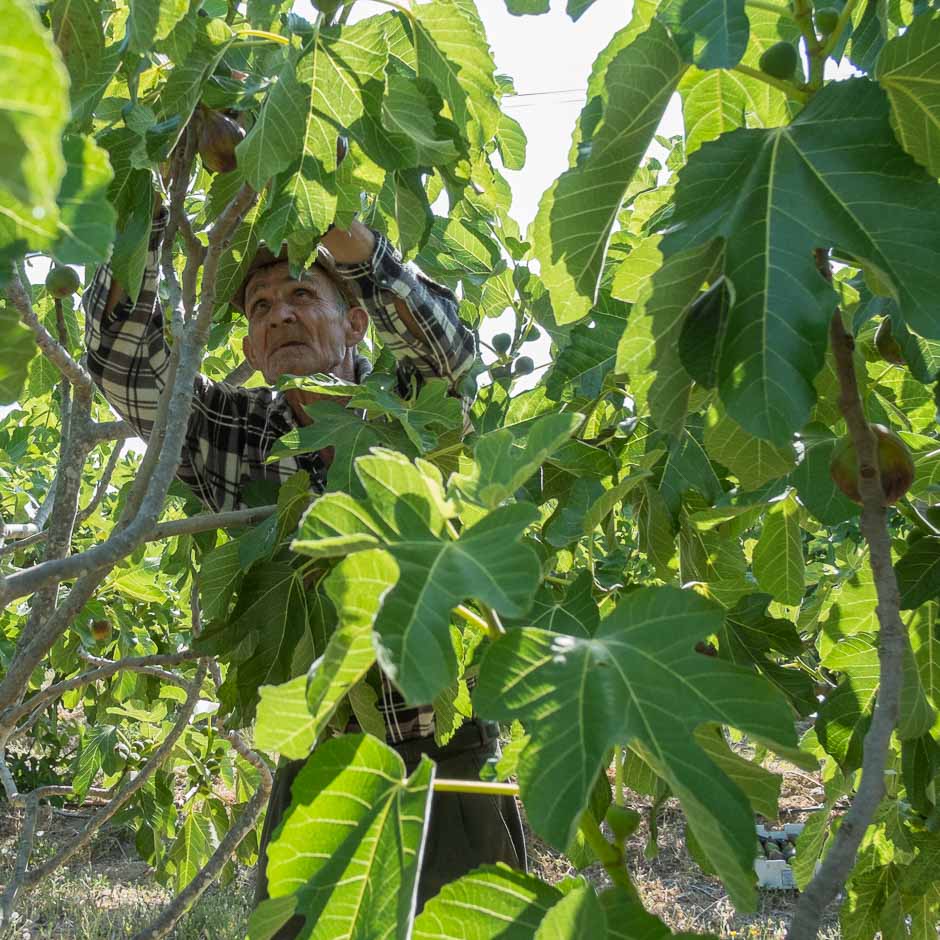
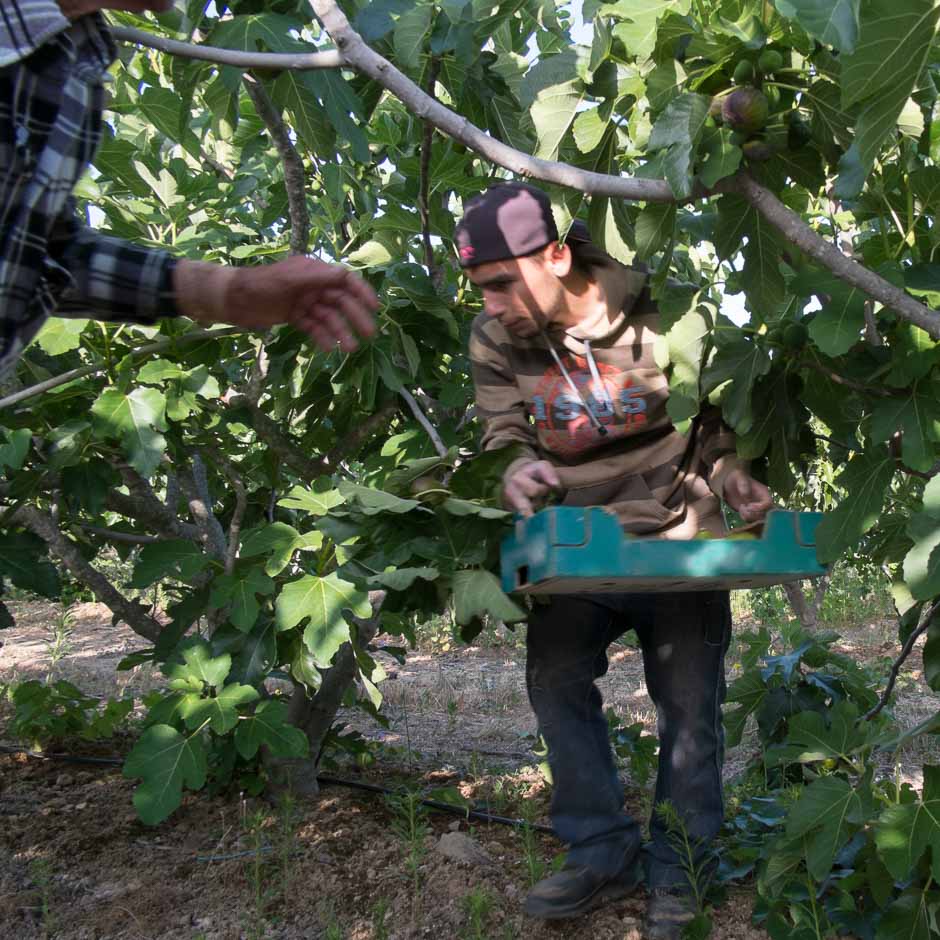

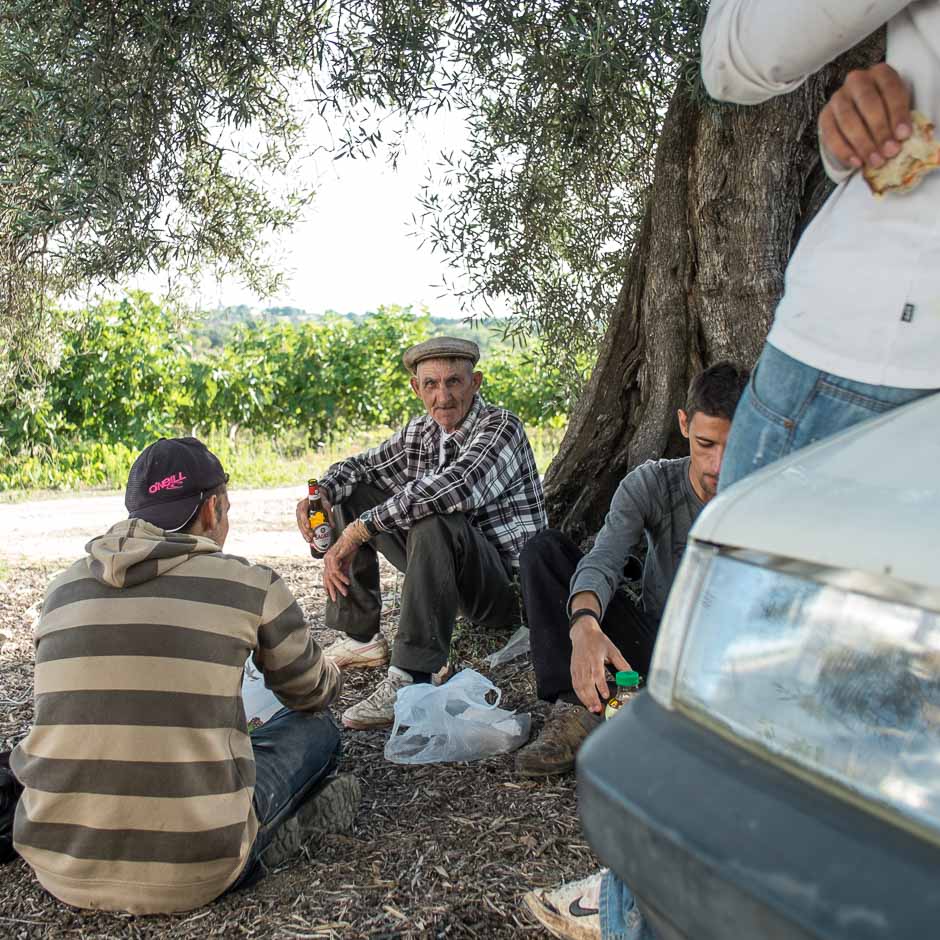
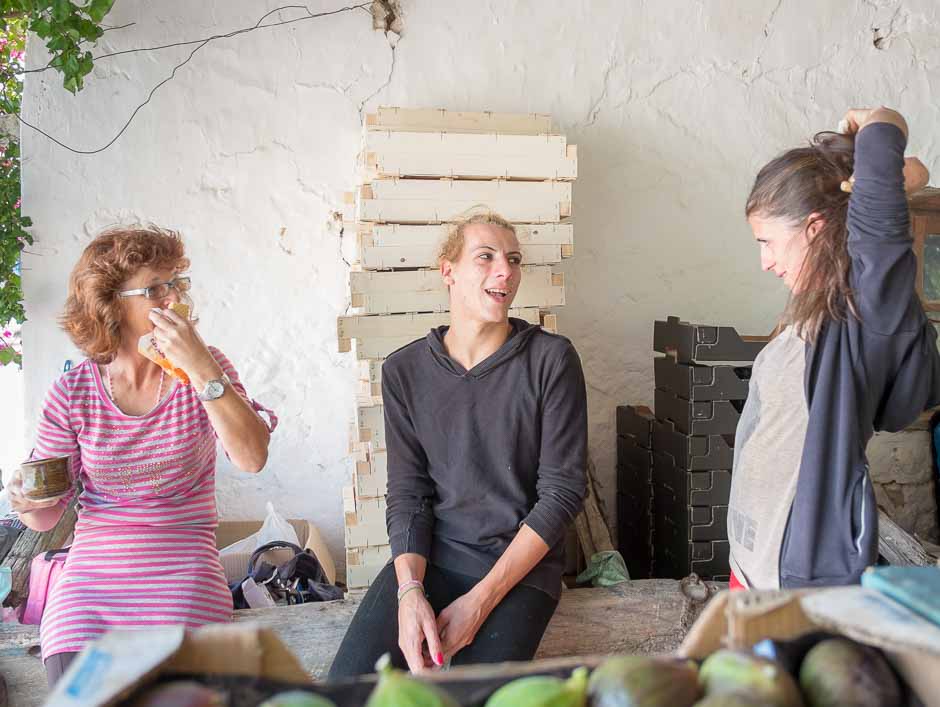


Documentary work, Figo new generation is concerned with the changing scapes of labour in the south of Portugal, currently within the realm of small scale fruit (in this case fresh fig, ficus carica) farming. It is an open work, in the sense that many other changes are taking place in the agricultural workforce and farm-scapes in the South; from migrant workers to woofers from all over Europe, and these will be integrated as the photographic work progresses. The effects of legislation are also transforming the countryside and farming practises. The more recent work on the Terra Cinza series documents more recent trends in farming. These include a move towards large scale green house farming enterprises.
Fig new generation under pressure from EU based legislation
As national EU based legislation trickles down to the farmer several effects are becoming apparent in census data. The legislation, aimed at promoting a more efficient and modernised agricultural sector, associated with escalating land costs due to tourism pressures is clearly placing an ever increasing number of small family farms “offside”, where survival is particularly difficult, a veritable uphill battle. Species like ficus carica are not well adapted to areas where these pressures exist. Access to inputs (water, agro chemicals, markets) has also been highly regulated; access is dependent on size, location and certification processes.
Mediterranean environmental landscape
Fig new generation is also about a traditionally farmed species (common fig). Species that are a part of the local culture and environment/al landscape for centuries, species central to local farming systems. Traditional Mediterranean farming systems are based on adapted species – ie dry summer climate. These include carobs, grapes, almonds, pomegranate, to name a few. These systems are being currently and consistently replaced by higher profit ones that employ unproven species – their pathologies are not yet here – with more intensive farming practices and inputs, including much greater water consumption. A balance has yet to be reached here.
This work started out as the re-connect series, in 2014.